Introduction
In the global marketplace of small commodities, the city of Yiwu stands out as a major sourcing hub. As a specialised international trading company, Hong Kong Bairuida International Trade (“Bairuida”) has been actively engaged in sourcing, manufacturing and logistics since 2008. Our business model rests on deep relationships with factories, experienced logistics partners, and a strong grounding in compliance and export-logistics of more regulated goods.
Among the many product categories exported from Yiwu, certain items are classified as dangerous goods (DG) — such as lighters, fireworks, certain cosmetics, chemicals, and other items with flammable, explosive, toxic or oxidising properties. These goods demand special attention from sourcing, factory control, packaging, documentation, transport and export clearance.
In this article we explore:
-
Why Yiwu is a major hub for small-commodity export, including dangerous goods
-
Key product categories of dangerous goods exported from Yiwu
-
Regulatory and logistical challenges of exporting dangerous goods from China
-
How Bairuida ensures full compliance and safe logistics for dangerous-goods export
-
Practical tips for overseas buyers and importers working with Yiwu-sourced goods
-
Why choosing a reliable partner matters, and how you can leverage Yiwu sourcing with peace of mind
Let’s dive in.
1. Why Yiwu — the Global Small-Commodity Hub
Nestled in Zhejiang province, Yiwu has become world-famous for its wholesale market of small commodities. The Yiwu International Trade City (also called China Commodity City) is often described as the world’s largest wholesale market for small goods.
– It hosts tens of thousands of booths and stores offering a vast variety of consumer goods, from toys, textiles and accessories to hardware, chemicals, packaging, daily-use items.
– Yiwu has developed impressive logistics infrastructure, including freight-rail links to Europe, and a global network of buyers from 233+ countries/regions.
– According to official data, Yiwu’s market-procurement exports account for a large share of its total foreign‐trade value.
For importers, this means Yiwu offers:
-
Extensive variety and competitive sourcing
-
Factories (or access to them) with often fast production lead-times
-
A well-developed logistics environment (though more regulated when it comes to dangerous goods)
-
Access to small-volume orders, prototyping, and bulk sourcing
However: with the advantage of variety comes the responsibility of compliance — especially when dealing with items that fall under hazardous classification.
2. Dangerous Goods Product Categories in Yiwu Export
Below are some of the major product categories sourced in Yiwu that may fall into the “dangerous goods” category (and thus require careful control).
2.1 Lighters & ignition devices
Lighters (gas lighters, refillable lighters, novelty lighters) are flammable goods and thus subject to special export controls. These are frequently found among small-commodity exports.
2.2 Fireworks, pyrotechnics
Fireworks and other pyrotechnic devices are explosives or flammable goods under international transport regulations. These items require strict packaging, labelling, documentation and compliance. Studies of Chinese ports show that shipments from Yiwu region include fireworks and explosives among mis-declared dangerous goods.
2.3 Cosmetics & aerosols
Some cosmetics (especially those containing flammable solvents, aerosol propellants, or oxidising agents) may fall under dangerous goods / “regulated-articles” categories for transport. Additionally, in ports, cosmetics have been listed among goods subject to concealed/undeclared dangerous-goods export controls.
2.4 Chemicals & oxidisers
This covers a wide range — solvents, oxidisers, flammable liquids, corrosives, certain detergents, insecticides, etc. These goods often require specific transport classification, packaging certificates, MSDS documents (Material Safety Data Sheets).
2.5 Batteries, electronics with lithium components (if applicable)
While not always physically manufactured in Yiwu, many small-commodity goods may incorporate batteries or electronic components that trigger dangerous-goods classification (e.g., lithium-ion batteries). It’s prudent to treat any small consumer good with these components as higher risk in logistics. See logistics services warning:
Thus, if you’re sourcing in Yiwu, and your product falls into any of these categories (or includes them), you must treat the sourcing, manufacturing and logistics with the care of a dangerous-goods export chain.
3. Regulatory & Logistical Challenges of Exporting Dangerous Goods from China / Yiwu
Exporting DG from China requires additional procedures compared to general commodities. Below are key challenges and considerations.
3.1 Classification & documentation
-
First, the goods must be correctly classified under the international dangerous-goods classification system (UN number, hazard class, packaging group). Without accurate classification, you risk mis-declaration, shipment rejection or legal penalties.
-
The exporter frequently must provide a Material Safety Data Sheet (MSDS) and any relevant packaging certificate.
-
For certain chemicals, China’s export licensing regime may apply (especially for dual-use or precursor chemicals). One logistics article notes: “not all Class 6 dangerous goods can be freely exported from China. … The licensing process can take 30-60 days.”
3.2 Packaging & labelling
-
Compared to general goods, DG require special packaging: anti-corrosion where relevant, leakage proof, waterproof, durable to transport conditions.
-
Labelling must clearly mark the hazard class, UN number, and “dangerous goods” status so that carriers, ports and customs know they are not ordinary cargo.
-
Incorrect packaging or labelling is one of the main reasons shipments are refused or delayed.
3.3 Declaration & export clearance
-
The exporter must declare correctly in customs and transport documentation. Mis-declaration (eg shipping DG as general goods) can lead to fines or confiscation.
-
Chinese customs and logistics authorities are very sensitive. For example, a report found: “primary undeclared dangerous goods in containers… from Yiwu region included cosmetics, perfume, alcohol, batteries, fireworks.”
-
Further, in Yiwu the local customs and anti-smuggling authorities actively hold seminars to raise compliance awareness.
3.4 Carrier and transport constraints
-
Not all carriers will accept dangerous-goods shipments — many will refuse if they detect irregular documentation or packaging.
-
Sea freight for DG is typically more expensive and subject to stricter rules. One article: “The container sea freight rate needs to be charged according to sea freight of dangerous goods… sea freight of dangerous goods is several hundred to thousands USD more expensive than that of general cargo.”
-
Transport modes matter: Air, sea, rail each have their own regulations. In China, for example, revised regulations on railway transport of DG came into effect recently (TB/T 30008-2023).
3.5 Increased risk & cost
-
Because of higher regulatory burden, the risk of delays, rejections, extra inspections is higher.
-
Using unscrupulous suppliers or un-qualified transport/logistics partners can lead to serious problems: fines, penalties, loss of goods, damage to brand reputation.
-
As a buyer, you must factor in higher costs for compliant handling, premium freight, insurance, packaging, testing and documentation.
3.6 Sourcing risk in Yiwu
-
While Yiwu offers wide sourcing advantages, it also demands vigilance. Some goods may be improperly declared by suppliers. According to a logistic study, Yiwu-origin shipments were among those found with concealed dangerous goods in Chinese ports.
-
The local sourcing environment often includes many small factories; not all have DG-certified packaging or experienced export-DG handling.
-
You must work with trusted suppliers and logistics channels that understand DG export from China.
4. How Bairuida Ensures Legal & Compliant Export of Dangerous Goods
At Hong Kong Bairuida International Trade, our decades of experience and network in Yiwu allow us to manage the dangerous-goods export process end to end, with high standards of compliance, risk control and transparency. Here’s how we do it:
4.1 Supplier auditing & factory cooperation
-
We have worked with many long-established suppliers in Yiwu and surrounding areas since our founding in 2008. This allows us to select factories with proven experience, know-how and reliable compliance track-record.
-
For DG items (lighters, chemicals, fireworks, aerosols, etc.) we ensure the factory has proper packaging capabilities, QA/QC records, and is familiar with DG export rules.
-
We perform documentation checks: ensure the factory can provide MSDS, UN classification (if required), packaging certificates, inspection/test reports (where applicable).
4.2 Packaging, labelling and pre-shipment checks
-
We ensure that the packaging meets the required standard for DG transport: correct materials, integrity, labelling, hazard symbols, outer-pack requirements.
-
We coordinate with our logistics partner to pre-check container or carton load-out to ensure no improper mixing of DG with incompatible goods, and proper segregation, if required.
-
We review the shipping mark, dangerous-goods label, UN number and hazard class labelling to avoid rejections or additional inspections.
4.3 Export documentation & clearances
-
We handle the customs declaration with correct HS codes, DG classification, and ensure full transparency with the buyer and carrier.
-
We engage carriers with experience in DG export, ensuring they accept the documents and packaging.
-
For items requiring export licences (chemicals, dual-use items) we coordinate the necessary Chinese authorities and ensure compliance.
-
We monitor and track the shipment until it leaves port and beyond, keeping you informed along the chain.
4.4 Logistic options and carrier selection
-
We select shipping/air/rail options suited to the product: e.g., sea-freight container, LCL (less-than-container-load) or FCL, air freight when speed + regulation allow, or rail where available.
-
We factor in the higher freight cost for DG and convey these transparently to you.
-
We coordinate insurance, handling and documentation to minimise risk of damage, delays or rejection.
-
We maintain relationships with carriers and freight forwarders who specialise in DG export from China, especially from Yiwu region, so we stay ahead of regulation changes.
4.5 Buyer support & after-sales
-
We provide the buyer with all relevant documentation (MSDS, labelling, packaging list, certificate of origin, etc.) to assist with import clearance in the destination country.
-
We advise on import-country-side regulation: some countries treat DG strictly; our team helps you understand if you need special permits, notifications, or handling procedures.
-
We stay engaged post-shipment to handle any queries or clarifications, whether from customs, carrier or buyer side.
4.6 Why this matters
-
By managing the dangerous-goods export chain end-to-end, we reduce risk of shipment rejection, costly delays, non-compliance penalties or even confiscation.
-
For you, the buyer, this means you get: sourcing advantage (access to Yiwu’s wide commodity range) + compliance peace of mind (you’re not left to navigate DG export from China alone).
-
In today’s global environment, with supply-chain audits, customs scrutiny and brand risk higher than ever, compliance is not optional—it’s essential.
5. Practical Tips for Overseas Buyers Sourcing Dangerous Goods from Yiwu
When you plan to buy dangerous‐goods items from Yiwu, here are key tips to keep in mind:
5.1 Pre-sourcing questions
-
Ask the supplier: “Is this item classified as dangerous goods? If yes, what UN number/hazard class?”
-
Request MSDS, packaging certificate, test reports. Confirm that packaging is approved for export of that class of goods.
-
Confirm that the supplier has exported this item before (with documentation) and works with a freight forwarder experienced in DG.
-
Check whether any country-specific restrictions apply (destination country may require additional permits).
5.2 Logistics and shipping planning
-
Choose the right transport mode: Sea is common but may restrict some DG classes; air/rail often cost more but may be necessary for certain items.
-
Factor in higher freight rates for DG: As noted, sea-freight for DG may cost substantially more than general cargo.
-
Ensure the forwarder/carrier is aware and accepts DG for export + import to your country — if they refuse, you’ll face delays or forced reroute.
5.3 Packaging & container loading
-
Confirm that packing is secure, labelled, and segregated from incompatible goods.
-
Ensure the shipping mark indicates “Dangerous Goods – Class X – UN XXXX” as needed.
-
Inspect container load-out if possible, or ask for photos showing packaging and loading.
5.4 Import-country readiness
-
Check your country’s import regulation for that class of DG: Some countries require prior notification, special licences, or may outright forbid certain sub-classes.
-
Ensure you have the MSDS and other documentation to present to customs/port authorities.
-
Plan for insurance covering DG (often higher risk).
-
Understand transit time: Any delay may incur extra storage/handling costs if the container is held by customs.
5.5 Compliance chain & audit trail
-
Keep all documentation: supplier contracts, test reports, MSDS, packaging certificate, shipping documents, customs clearance proofs.
-
Ensure that the supplier’s declarations match what is physically shipped — mis-declaration is among the common risk factors.
-
If you’re a brand importing for downstream sale, maintain these records to demonstrate due diligence and regulatory compliance.
6. Why Partnering with Bairuida Makes a Difference
As a buyer sourcing from Yiwu, you might work with many trading companies or directly with factories. What sets Bairuida apart when it comes to dangerous goods?
-
Experience: Since 2008, Bairuida has engaged in international trade from the Yiwu market, with our own factories and logistics companies in the chain. This gives us deep insight.
-
Reliable supplier network: We cooperate with many long-established suppliers in Yiwu. That means the factory side is vetted, experienced, and trusted.
-
Logistics as part of the service: We don’t just source; we manage logistics, documentation, export clearance, and keep you updated throughout.
-
Compliance first: We understand the special requirements for dangerous goods, and we build the export chain accordingly—avoiding shortcuts that might appear cheaper but increase risk.
-
Transparency and communication: We strive to keep you informed at each step—packaging status, loading, departure, documentation. You know what you’re getting.
-
Risk control & brand protection: For you, the buyer, using our service means you avoid many of the pitfalls of sourcing dangerous goods from Yiwu (un-declared shipments, rejected containers, non-compliant packaging, hidden extra costs).
In short: you get the sourcing advantage of Yiwu, with a partner who understands the export-logistics and compliance demands of dangerous goods.
7. Case Study (Hypothetical) – Exporting Refillable Gas Lighters from Yiwu
To illustrate how the process works, here’s a simplified hypothetical example of sourcing refillable gas lighters (which are classically flammable goods) from Yiwu, managed by Bairuida:
-
Sourcing and factory selection: We identify a Yiwu-based factory producing refillable gas lighters. We verify the factory has experience exporting lighters, holds relevant certifications (e.g., ISO 9001, CE/UL where required) and packaging capabilities.
-
Documentation and classification: We obtain from the factory the MSDS, packaging certificate (approved for flammable gas container shipment), and confirm UN classification (e.g., UN 1057 for Lighters – flammable gas) and hazard class (2.1 or 2.2 depending on the product).
-
Sample packaging check: We review the packaging: inner liners, cylinders, protective cap, shipping mark “UN 1057 – Lighters – Class 2.1”; outer carton clearly labelled “Dangerous Goods – Flammable Gas”.
-
Logistics planning: We use a freight forwarder experienced in DG from China. Sea-freight is chosen; we book FCL, segregate the carton, and ensure the shipping line accepts the DG classification. We factor in higher freight rate for DG.
-
Export clearance: We declare to Chinese customs correctly. Documentation includes export licence (if required), packaging certificate, MSDS, shipping mark details, freight forwarder’s DG acceptance confirmation.
-
Shipment monitoring: Container is loaded, photos are sent to you. We track departure from the Chinese port. We send you the Bill of Lading (B/L) and all export documentation.
-
Import-country readiness: You (the buyer) receive documentation (MSDS, UN number, shipping mark info, other import licence if needed). Your customs/import agent is ready for clearance.
-
Delivery & after-sales: Once goods arrive and clear, we follow up for your feedback and handle any issues (e.g., damage, missing paperwork, etc.).
By following this workflow, the risk of freight rejection, customs hold, or non-compliant shipment is significantly reduced.
8. Frequently Asked Questions (FAQ)
Q1: What qualifies as “dangerous goods” when sourcing from Yiwu?
A: Generally, products that are flammable (gas, liquid), explosive, oxidising, toxic, corrosive, infectious, radioactive, or contain lithium batteries. For example: lighters (flammable gas), fireworks (explosive/flammable), certain aerosol cosmetics (flammable), chemicals (oxidisers or toxic) all fall into DG categories.
Q2: Can I import dangerous goods from Yiwu just like any other product?
A: Not exactly. While you can source from Yiwu, you must ensure correct classification, packaging, labelling, documentation, and choose carriers that accept DG export. If these are missed, you may face shipment rejection, delays or fines.
Q3: What additional cost should I expect for sourcing DG from Yiwu?
A: You will likely face higher packaging cost (DG-approved pack), higher freight cost (carrier premium for DG), possible export-licence cost or longer lead time, additional documentation/testing.
Q4: How can I check if a Yiwu factory is reliable for DG export?
A: Ask for export history (DG items), ask to see test/packaging certificates, MSDS, works with experienced DG forwarder, clear understanding of UN number/hazard class, and ensure their product matches what is declared.
Q5: What happens if a shipment from Yiwu is mis-declared (DG declared as general goods)?
A: This is risky — it may lead to shipping line refusal, customs seizure, fines, delayed delivery, higher cost, or damage to your brand. For example, studies found undeclared DG in containers from Yiwu region. 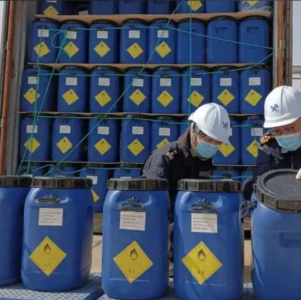
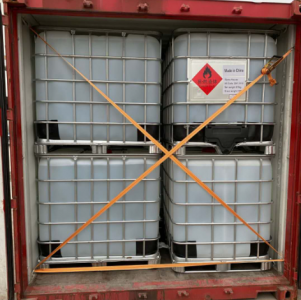
9. Conclusion
Sourcing from Yiwu continues to offer tremendous opportunities for global buyers seeking variety, competitive pricing and fast turnaround. But when your product falls into the category of dangerous goods — whether lighters, fireworks, certain cosmetics, chemicals or other regulated items — the stakes are higher. Regulatory compliance, packaging, labelling, carrier acceptance and logistics diligence are no longer optional; they are essential.
At Hong Kong Bairuida International Trade, we bring decades of sourcing, factory-network and export-logistics experience to your service. We understand Yiwu’s ecosystem and the special demands of DG export. By partnering with us, you get the sourcing advantage of Yiwu and the assurance of legal, compliant, safe logistics.
If you are planning your next order of DG-type products from Yiwu and want a trusted partner to handle sourcing + export logistics end-to-end — we’d be delighted to work with you. Please get in touch with our team, and let’s turn your sourcing vision into a compliant, cost-effective reality.
Thank you for reading.
— The Bairuida Team

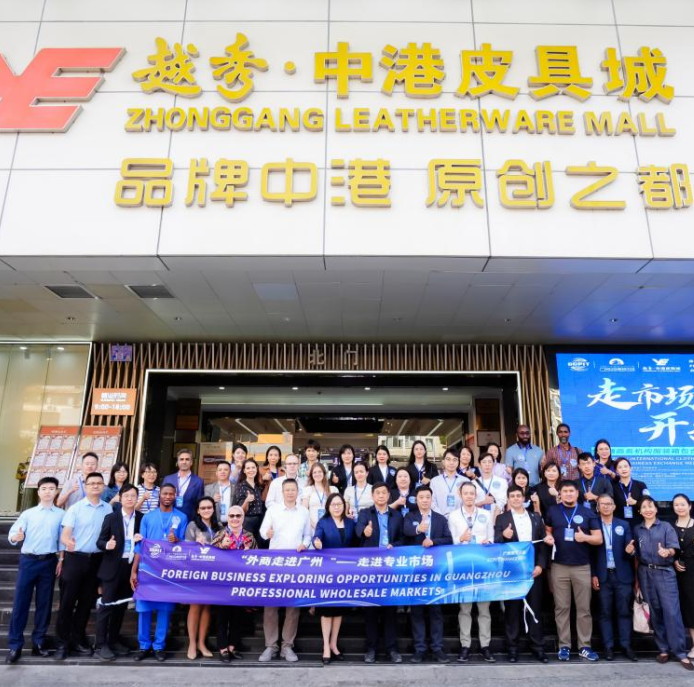
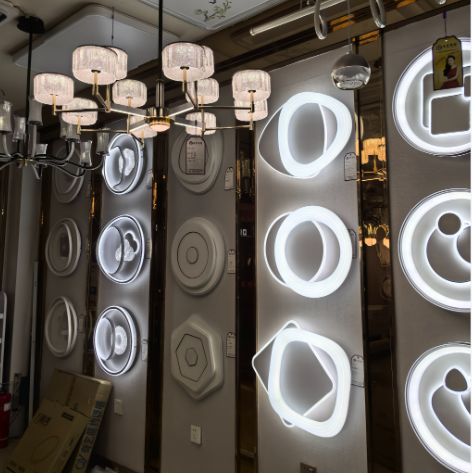
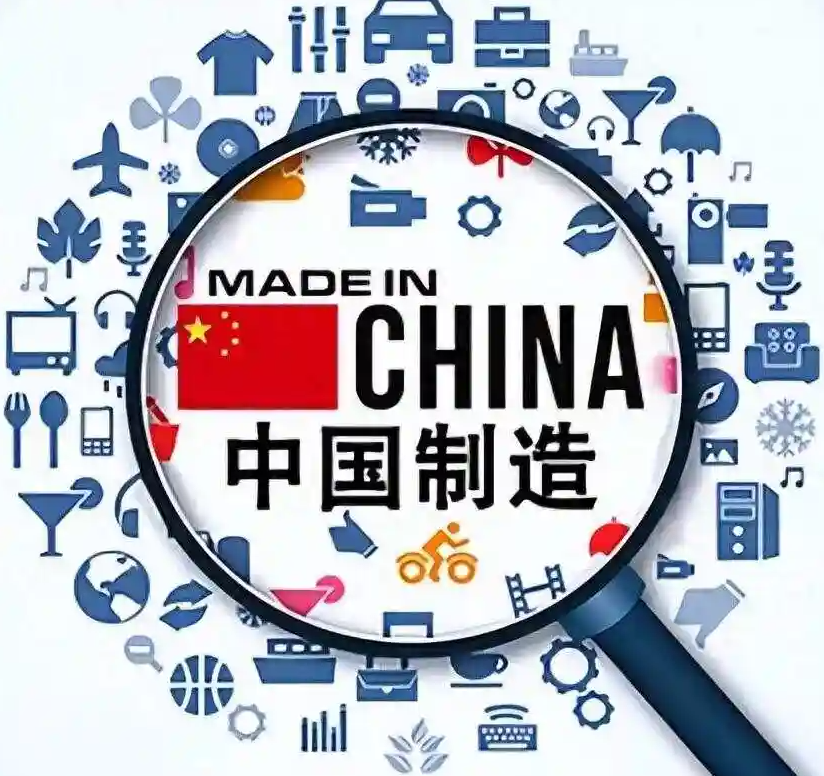
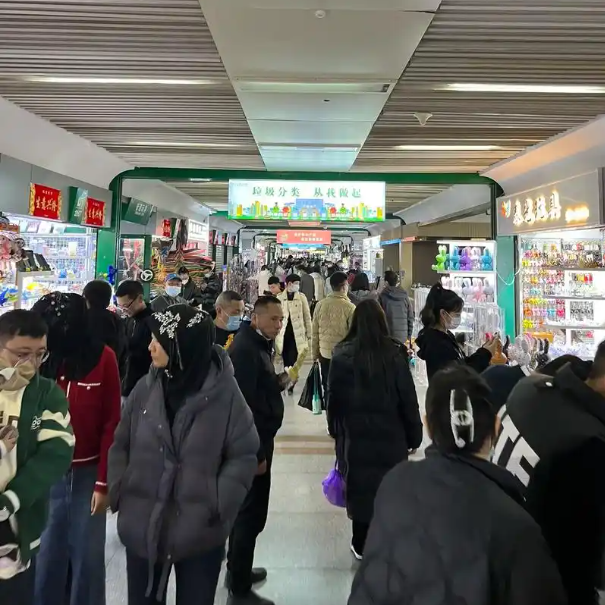
Recent Comments